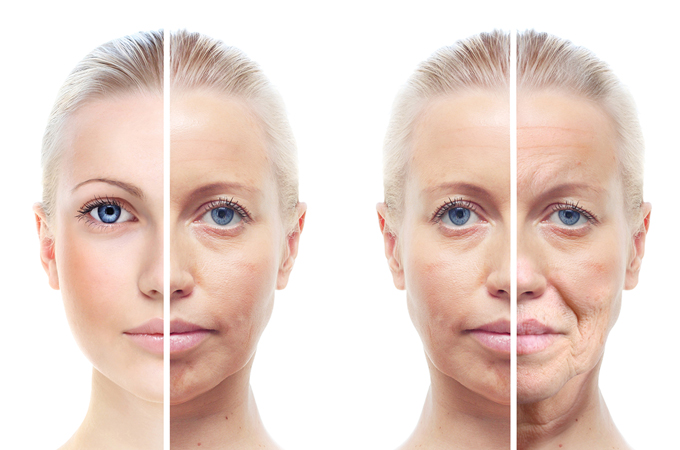In recent years, the health world has given women their due by recognizing that in many instances, women’s health falls into its own category. Diseases in women, after all, do not always present in the same way as they do in men. And while men and women are equal, they’re not the same; biological differences can affect everything from testing to treatment.
[fitness]
There was a time when there were ‘women’s exercises’ and ‘men’s exercises,’ and the two rarely overlapped. But today women routinely lift weights, run marathons and kickbox. Exercise is crucial to health and longevity, especially when you mix it up with strength, flexibility and cardio.
live strong
“Over the years, views of women and fitness have changed,” says Malinda Walker, assistant fitness manager at the St. Louis Jewish Community Center. While traditionally women have avoided strength training, strength is one of the greatest needs they will rely on as they age.
“Women do not gain muscle mass like men do,” points out Kimberly Hellyar, a trainer with Accomplished Fitness and My Workout with Kim. “That is their biggest fear and the one thing that will make them shy away from strength training —they are afraid they will bulk up. But the need for them to do strength exercises is so important, especially as they get older.”
mix it up
Women and men need to take both sides of the gym seriously. “As women get older, maybe they need to work more on function rather than just trying to lose weight and increase endurance,” Walker says. “They need to make sure they are strong to avoid osteoporosis. Doing squats and lunges or just walking around the track, things that mimic everyday movements, will keep the calcium deposits strong.” Men are less susceptible to osteoporosis, she says, “but it is important for men to do the same types of things to keep them strong.”
Women and men tend to store flab in different places, but shedding it requires the same technique. “Often men carry weight in the abdomen, and women might carry more in the hips and thighs. It is specific to genetics as well,” Walker says. “Personal trainers often hear that women want to make sure that their triceps aren’t flabby or that their hips are fit. If they work out over the years, they will have less flab.” And, she points out, as women grow older, metabolism slows down faster than it does for men. “They have to really, really watch what they eat and clean up their diet faster than men do.”
no pain, no gain
“In the past, women hit the cardio exercises hard-core,” says Hellyar, but sports physiology theory has changed on that. “The thinking now is that you do not have to exercise hard or long—if you mix cardio along with strength training, sessions of 30 to 45 minutes would be good.” As women enter menopause, high-intensity interval training is recommended. “You can get much more benefit by working in intervals and picking up the intensity,”
Hellyar says.
People engaged in a fitness program soon see the benefits, Walker adds. “I have had many people, younger and older, tell me they feel stiff when they first come in, but they leave feeling like they have so much more motion than when they started.” She reports that many J members in their 80s and 90s frequent the J gym. “These people are adding years to their lives.”
 [depression]
[depression]
Even the statistics are depressing: Twice as many women as men are likely to go through depression, and the incidence increases as women approach 60.
numbers don’t lie
“Women are about twice as likely as men to go through depression over their lifetimes,” says psychologist Bronwen DiAntonio, director of Women’s Reproductive Mental Health and Wellness Program at St. Louis Behavioral Medicine Institute. Women report an average of four “mentally unhealthy days” over a month, which include incidences of “stress, depression and problems with emotions.” Men reported 2.9 days during the same timeframe. The age group recording the highest incidence of depression is 40- to 59-year-olds.
define depression
Why are women so persistently beset with depression? “We don’t know for sure, but there are lots of contributing factors,” DiAntonio says. “When there is a major hormonal shift there can be an accompanying disruption in mood. Hormones often contribute to depression but are not always the cause.”
Yet depression seems to parallel hormonal milestones in women’s lives. “When a girl gets her first period, there is a major hormonal shift that often can have an effect on her moods,” DiAntonio says. “When a woman becomes pregnant or is going through postpartum, hormonal changes are very strong, and that can lead to more depression.”
The inevitable major life stresses may trigger depression, too. “Living with young kids—staying at home or balancing work and family—can be very stressful. Any time men or women face more responsibilities and roles than they can handle, they are likely to feel depressed or anxious,” DiAntonio says.
“Any time there is a significant loss or key transition in life, whenever roles are being disrupted, people will have more depression,” she says, adding that other triggers appear when women are ‘sandwiched’ between ailing parents and a demanding family, or when they experience losses that lead to social isolation.
a silver lining
“I really want to emphasize that depression is treatable,” DiAntonio says. “A lot of people don’t want to ask for help or think there is stigma attached to depression, but it is very treatable.” She recommends starting with the least invasive measures. “Exercise is very helpful, especially for mild to moderate depression,” she says. Basic self-care is very important, which includes eating enough, spreading out eating over the course of the day, sleeping enough and having social support. “These are things that make sense for all of us to do, but they are incredibly important during depression because they provide the underpinning that helps people move on.”
And medication can be part of the treatment protocol, DiAntonio says. “For severe depression, anti-depressant medication is certainly advised. For mild to moderate depression, it depends on the case. There are a variety of kinds of medications. A good psychiatrist can help people figure out the right one for them.”
The most common treatment for depression is cognitive behavioral therapy, or talk therapy, DiAntonio says. “There is very good research evidence that this is effective.” The therapist will begin this phase of treatment with an assessment of the individual’s strengths, weaknesses and symptoms. Physical symptoms will be addressed to enable the individual to move to the next phase of treatment—thinking more positively. “If they are having lots of negative thoughts about themselves, that is a great place to start,” DiAntonio says. “Women, especially, often feel like they are failures. We want to take a look at that. With depression, it is not that positives aren’t there, it is that the person is not looking at them.”
A change in perspective can be meaningful, she says. “If you are always super-critical and become even 50 percent less critical, that really impacts your life. At the end of each day, think of three positive things that happened. After a while, you are priming yourself to think like that.”
[sex after menopause]
As we’ve all heard in TV commercials, sex after menopause doesn’t have to be painful. But a natural decrease in hormones is a reality post- menopausal women have to face and find solutions for. Fortunately, they’re out there.
what’s going on?
“There is no longer a flow of hormones, and there is a natural loss of sexual desire that we somehow have to explain to our husbands,” says Dr. Theresa Knight, an obstetrician/gynecologist at Women’s Health Specialists of St. Louis. “So not only do we have this decrease in desire emotionally, but also physically, the vagina becomes drier, thinner and less elastic.”
“We can’t stop it,” adds Dr. Mitul Shah, assistant professor of obstetrics and gynecology at Saint Louis University School of Medicine and the SLUCare Physician Group. “If women know it is going to happen, they can start to prepare. The changes usually start in the 45- to 55 year age range, and they don’t affect everybody.”
Lifespans have increased dramatically, but many parts of the body still wear out at what used to be the end of life, Knight points out. “We are living longer but there still is a finite time for our teeth, our knees and our hormones to last. We are out-living these things, so we have to think about replacing them.”
Complicating late-life relationships is the differential decline in male sexuality, Knight says. “As men age, their testosterone levels drop too, but what they notice first is not so much a loss of desire as a loss in the ability to obtain an erection.” Then came Viagra. “So the man is at a place where he would like that intimate connection, and the woman is at a place where she has no desire or simply can’t,” Knight says. “This is a serious topic. I see divorces and affairs for this very reason.”
make adjustments
A number of life changes can improve the situation. “Start using natural things—unscented products, free-and-clear laundry detergents, soap that is unscented and moisturizing,” Shah says, explaining that chemical-based products can irritate the vaginal area, which is more sensitive than it was in the younger years. “Some vegetable-based oils can bring moisture back to the area that is thin and dry.”
Knight also recommends oil-based lubricants. “Olive oil and coconut oil are wonderful, safe, natural lubricants that can be used internally. You can use plain olive or coconut oil, or use lubricants that are made with these as the base. Of course, nothing is going to be better than replacing what we have lost,” she says.
the hormone route
“Hormone replacement will take care of the problems with desire, vaginal dryness and loss of elasticity,” Knight says, acknowledging that some women simply do not want to take a systemic hormone. “They can use topical estrogen or testosterone in the vagina with little or no systemic absorption.” The most common one is called Estradiol and comes in different forms—a tablet, a ring and creams, Shah explains. “Some of the creams have alcohols so they can burn. The tablets and the ring are better,” she says.
Hormone replacement therapy can be a contentious idea, Knight acknowledges. “There are clear risks and benefits, but if we are going to live longer, we have to consider when to replace and what to replace. It is a discussion to have with a physician who can guide you through decisions.”
Unfortunately, medication alone does not usually solve all the problems of sex after menopause, Shah points out. It doesn’t eliminate the importance of non-irritating products and vaginal lubricants. “Patients don’t like to hear that; they want a quick fix,” Shah says. “But often medication is not enough. If the skin is irritated, thin and raw, medication doesn’t fix that. It’s a package deal. Once we get women on board, they will have good results.”








